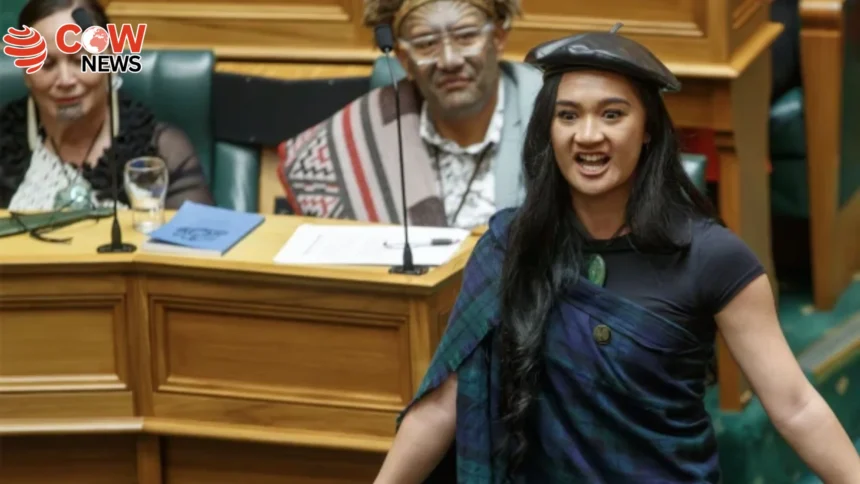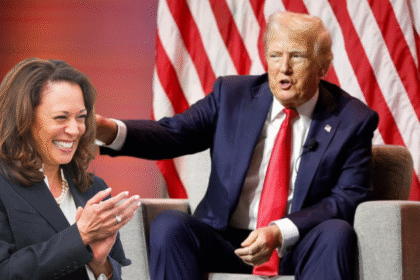In a significant political development, three members of New Zealand’s Māori Party have been suspended from parliament for performing a traditional Māori haka protest. This has become the longest parliamentary suspension in New Zealand’s history, marking a sharp escalation in the country’s political culture and its relationship with the Māori community.
The three MPs, representing the Māori Party, staged their protest during a heated parliamentary session in November last year, opposing a controversial bill related to the Treaty of Waitangi. The treaty, signed in 1840 between Māori chiefs and the British Crown, is considered the founding document of New Zealand. However, the proposed bill sparked fears that it could limit the constitutional rights of the Māori community, prompting nationwide protests.
The MPs, led by party co-leaders Rawiri Waititi and Debbie Ngarewa-Packer, performed the haka, a traditional Māori war dance, as a symbol of resistance. They were protesting against the potential erosion of Māori rights by the new legislation, which they believed was detrimental to the Māori people.
As a result, Rawiri Waititi and Debbie Ngarewa-Packer have been suspended for 21 days, while 22-year-old Hana-Rawhiti Maipi-Clark received a 7-day suspension. This action represents the harshest parliamentary penalty in New Zealand’s history, as prior suspensions had never exceeded three days.
The performance of the haka, which has cultural and spiritual significance, quickly gained international attention. Hana-Rawhiti Maipi-Clark, the youngest member of parliament at just 22, became widely known for her involvement in the protest. The haka, which was performed in close proximity to the leader of the right-wing party, sparked outrage among other MPs, who viewed it as disruptive and inappropriate for the parliamentary setting.
The Privileges Committee of Parliament ruled that the MPs’ behavior could be perceived as an attempt to intimidate or threaten other members of the house. Although Hana-Rawhiti later submitted an apology, her suspension remained shorter than her colleagues’, and the committee noted her gesture as an acknowledgment of the gravity of the situation.
Before her suspension, Hana-Rawhiti spoke out, questioning whether her and her colleagues’ voices were being silenced for being too loud. She posed the question, “Are our voices too loud for this house? Is this why we are being silenced?” Her remarks sparked further debate about the role of Māori voices in New Zealand’s political discourse.
The controversy stems from the introduction of a bill related to the Treaty of Waitangi, which was being debated in parliament for the first time. The bill sought to address ongoing issues surrounding the treaty, but critics feared it could limit Māori sovereignty and rights. As protests erupted across New Zealand, the government eventually decided to withdraw the bill.
Hana-Rawhiti Maipi-Clark’s protest escalated when she tore up a copy of the bill in front of the parliament chamber, before performing the haka with her colleagues near the right-wing leader’s seat. This act of defiance was deemed an act of disorder by several parliamentarians, leading to an official referral to the Privileges Committee.
In Māori culture, performing the haka is not an unusual act in the parliament, but it traditionally requires prior approval from the speaker. The MPs did not seek permission, which led to their suspension. However, some analysts argue that the suspension is being seen as an attempt to suppress Māori voices in parliament. This action could signify a new turning point in racial and cultural politics in New Zealand.
The suspension of these Māori MPs has sparked a wider conversation about representation, cultural expression, and the political power of indigenous voices in New Zealand’s legislative process. Critics argue that the penalty represents an effort to silence Māori protests against systemic inequities, while others view it as a necessary disciplinary measure for maintaining parliamentary decorum.
As New Zealand grapples with this political crisis, the fallout from the haka protest continues to unfold, shedding light on the complex and ongoing issues surrounding Māori rights and their role in shaping the nation’s political landscape.







